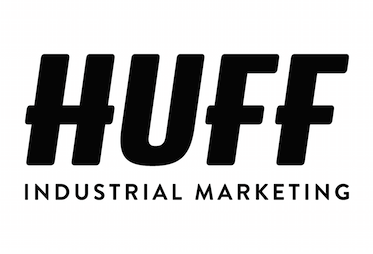
In 2007, Michael Collins wrote an insightful piece for Manufacturing.net about US-based manufacturing companies.
He grouped manufacturers by four types:
Type 1: Very small shop, family-owned, with very little operating capital and a real fear of generating enough day-to-day cash flow to keep the doors open.
Type 2: A company with up to 50 employees, known customers, and decent cash flow. Also family-owned. These companies are very good at what they do, but lack the systems and staff to grow to Type 3 companies. They also have their own unique family dynamics, which can be good and bad.
Type 3: The mid-sized companies with 100 – 500 employees (usually family-owned but not always), managed by a professional staff and well-developed systems.
Type 4: Very large manufacturers, often publicly-owned.
Challenges facing Type 2 manufacturers
“One of the most popular approaches to helping small manufacturers is the assumption the same theoretical concepts and solutions pioneered by giant manufacturers will also work for small manufacturers,” Collins states. [emphasis added]
Collins’ focus is on the issues Type 2 manufacturers face as they seek to grow to Type 3 companies.
The quoted statement is about how business growth consultants will apply the same practices and ideas the “big boys” use to grow, and how these practices can actually harm a small, family-owned manufacturer.
That’s because smaller manufacturers face resource limitations, which Collins labels as “FACTS”:
F – Fear of making the wrong decision
A – Limited access to capital
C – Cash flow problems
T – Time constraints
S – Small or no staff
Huff Industrial Marketing works with Type 1 and Type 2 manufacturers. Because our clients lack marketing staff, we become their marketing department.
As the relationship grows, trust is built, and over time, clients open up about the challenges they face.
Cash flow is always an issue, but in the last year, as the pace of US manufacturing speeds up and companies struggle to find skilled labor, clients have begun talking about creating healthy company cultures, entering new markets, and redesigning their factories or facilities to accommodate new and unexpected business.
But the biggest challenge facing family-owned manufacturers by far is time. Time to deal with day-to-day fires and especially time to think about how to market and grow the company.
Small manufacturers know they need to market their companies; the problem is, they lack the time to do it or even the energy to think about it.
They’re also bombarded by marketing advice, much of it hyped up as publishers seek to increase clicks and page views.
Due to lack of time and knowledge, marketing becomes reactionary vs. proactive and strategic.
Consultants and agencies are sometimes called in, and the small manufacturing team is swayed by slick presentations and promises.
Concepts that work for consumers or large B2B companies are then applied – and fail.
The result is wasted money, wasted effort, and little in the way of ROI.
Opportunity: Changing this paradigm
In his book, 12 Rules for Life: An Anecdote to Chaos, Dr. Jordan Peterson advises that you find people who want the very best for you (and distance yourself from those who don’t).
This advice is easily modified for small manufacturers: Find marketing consultants who care about your company and your success as much as you do.
To find the right agency or industrial marketing consultant for your manufacturing firm, you’ll have to spend some time talking to people and asking lots of questions.
Experience – Any agency or consultant can add “manufacturing” to a website. What you want to know, however, is if the person doing the work on your account has real manufacturing experience.
- Has he or she worked in a production environment?
- Does he or she understand your method of production as well as shop floor vocabulary?
- How long has he or she worked with small manufacturers?
- Has he or she even been to a factory and are they willing to come visit yours?
Approach – Each agency or consultant has a reason why they prescribe specific recommendations for improving marketing results. Ask probing questions about an agency’s approach, such as:
- What is your approach with regard to marketing a small manufacturing company like ours – and what’s it based on?
- What have been your results with this specific approach?
- I see you also work with consumer companies; how do you differ your approach with regard to manufacturers like me?
Results – Speaking of results, ask for them. Ask specifically how the agency or consultant is helping the small manufacturer grow sales. Don’t be swayed by, “Our client has top rankings” or “Our clients get xx number of leads.” The client could be getting dozens of leads, but they’re all crap! Ask instead:
- What is the percentage increase in sales for XX clients and how much can be attributed to your work?
References – And last but not least, ask for three current references and then call each one and ask specific questions such as:
- How responsive is the agency or firm? How long does it take for them to get back to you when you put in a request?
- How many inquiries do you get a month, how many go to quote stage and how many become sales?
- By what percentage has the agency or consultant helped you grow your sales?
- Do you believe the agency or consultant cares about your success? What actions on their part have lead you to think this?
Finding the right agency or consultant who understands your business, how you work, the challenges you face – and even better – cares about your success, will take some time and effort.
But the results will more than pay for themselves. In fact, you’ll find that your agency or marketing consultant becomes like part of the family – someone you can trust and who has your back.
Filed under: Our Thinking




